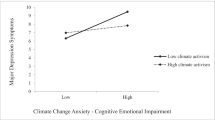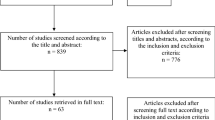Abstract
Anxious youth often have trouble regulating negative affect (NA) and tend to over-rely on parents when faced with challenges. It is unclear how social interactions with parents or peers actually helps or hinders anxious youths’ success in regulating NA. The aim of this study was to examine whether the success of anxious youths’ emotion regulation strategies differed according to social context. We compared the effectiveness of co-ruminating, co-problem solving and co-distracting with parents/peers for regulating anxious youth’s NA in response to stress in their daily lives. We also examined the benefit of attempting each strategy socially vs. non-socially (e.g., co-ruminating vs. ruminating). One-hundred-seventeen youth (9–14) with a current diagnosis of Separation Anxiety Disorder, Generalized Anxiety Disorder, and/or Social Phobia completed an ecological momentary assessment (14 calls over 5 days), reporting on recent stressors, their affective state, presence of others, and emotion regulation strategies within the prior hour. Mixed linear models revealed that co-distracting was the most effective social strategy for reducing NA, but only for boys. Co-rumination was the least effective social strategy for regulating NA. Regarding social context, only co-distracting was more effective for regulating NA over distracting alone, but only among anxious boys. Results suggest that co-rumination is an ineffective use of social support for regulating NA. Anxious boys may benefit from social support by co-distracting with parents/peers, but improper use may reflect avoidance and contribute to long-term anxiety maintenance. Results extend research on gender differences in interpersonal relationships and emotion regulation.




Similar content being viewed by others
References
Alden, L. E., & Taylor, C. T. (2004). Interpersonal processes in social phobia. Clinical Psychology Review, 24(7), 857–882. https://doi.org/10.1016/j.cpr.2004.07.006.
American Psychiatric Association. (1994). Diagnostic and statistical manual of mental disorder (4th ed.). Washington, DC: APA.
Axelson, D. A., Bertocci, M. A., Lewin, D. S., Trubnick, L. S., Birmaher, B., Williamson, D. E., . . . Dahl, R. E. (2004). Measuring mood and complex behavior in natural environments: use of ecological momentary assessment in pediatric affective disorders. Journal of Child and Adolescent Psychopharmacology, 13(3), 253–266. doi:1044-5463(20030901)13:3L.253;1-.
Barmish, A. J., & Kendall, P. C. (2005). Should parents be co-clients in cognitive-behavioral therapy for anxious youth? Journal of Clinical Child and Adolescent Psychology, 34(3), 569–581. https://doi.org/10.1207/s15374424jccp3403_12
Barrett, P. M., Rapee, R. M., Dadds, M. M., & Ryan, S. M. (1996). Family enhancement of cognitive style in anxious and aggressive children. Journal of Abnormal Child Psychology, 24(2), 187–203. https://doi.org/10.1007/bf01441484.
Breinholst, S., Esbjorn, B. H., Reinholdt-Dunne, M. L., & Stallard, P. (2012). CBT for the treatment of child anxiety disorders: a review of why parental involvement has not enhanced outcomes. Journal of Anxiety Disorders, 26(3), 416–424. https://doi.org/10.1016/j.janxdis.2011.12.014.
Chorpita, B. F., Brown, T. A., & Barlow, D. A. (1998). Perceived control as a mediator of family environment in etiological models of childhood anxiety. Behavior Therapy, 29(3), 457–476. https://doi.org/10.1016/S0005-7894(98)80043-9.
Connor-Smith, J. K., Compas, B. E., Wadsworth, M. E., Thomsen, A. H., & Saltzman, H. (2000). Responses to stress in adolescence: measurement of coping and involuntary stress responses. Journal of Consulting and Clinical Psychology, 68(6), 976–992. https://doi.org/10.1037/0022-006X.68.6.976.
Furman, W., & Buhrmester, D. (1992). Age and sex differences in perceptions of networks of personal relationships. Child Development, 63(1), 103–115. https://doi.org/10.1111/j.1467-8624.1992.tb03599.x.
Hankin, B. L., Stone, L. B., & Wright, P. A. (2010). Corumination, interpersonal stress generation, and internalizing symptoms: accumulating effects and transactional influences in a multiwave study of adolescents. Development and Psychopathology, 22, 217–235. https://doi.org/10.1017/S0954579409990368.
Hudson, J. L., Doyle, A. M., & Gar, N. (2009). Child and maternal influence on parenting behavior in clinically anxious children. Journal of Clinical Child and Adolescent Psychology, 38(2), 256–262. https://doi.org/10.1080/15374410802698438.
Hudson, J. L., & Rapee, R. M. (2004). From anxious temperament to disorder: An etiological model of generalized anxiety disorder. In R. G. Heimberg, C. L. Turk, & D. S. Mennin (Eds.), Generalized anxiety disorder: Advances in research and practice (pp. 51–76). New York: Guilford Publications Inc..
Jose, P. E., Wilkins, H., & Spendelow, J. S. (2012). Does social anxiety predict rumination and co-rumination among adolescents? Journal of Clinical Child & Adolescent Psychology, 41, 86–91. https://doi.org/10.1080/15374416.2012.632346.
Kaufman, J., Birmaher, B., Brent, D., Rao, U., Flynn, C., Moreci, P., ... Ryan, N. (1997). Schedule for affective disorders and schizophrenia for school-age children-present and lifetime version (K-SADS-PL): initial reliability and validity data. Journal of the American Academy of Child & Adolescent Psychiatry, 36(7), 980–988. https://doi.org/10.1097/00004583-199707000-00021.
Langrock, A. M., Compas, B. E., Keller, G., Merchant, M. J., & Copeland, M. E. (2002). Coping with the stress of parental depression: parents' reports of children's coping, emotional, and behavioral problems. Journal of Clinical Child & Adolescent Psychology, 31(3), 312–324. https://doi.org/10.1207/S15374424JCCP3103_03.
Laurent, J., Catanzaro, S. J., Joiner Jr., T. E., Rudolph, K. D., Potter, K. I., Lambert, S., ... Gathright, T. (1999). A measure of positive and negative affect for children: scale development and preliminary validation. Psychological Assessment, 11(3), 326338. https://doi.org/10.1037/1040-3590.11.3.326.
Levine, L. J., & Safer, M. A. (2002). Sources of bias in memory for emotions. Current Directions in Psychological Science, 11(5), 169–173. https://doi.org/10.1111/1467-8721.00193.
McLeod, B. D., Wood, J. J., & Weisz, J. R. (2007). Examining the association between parenting and childhood anxiety: a meta-analysis. Clinical Psychology Review, 27(2), 155–172. https://doi.org/10.1016/j.cpr.2006.09.002.
Monroe, S. M. (2008). Modern approaches to conceptualizing and measuring human life stress. Annual Review of Clinical Psychology, 4, 33–52. https://doi.org/10.1146/annurev.clinpsy.4.022007.141207.
Mor, N., Doane, L. D., Adam, E. K., Mineka, S., Zinbarg, R. E., Griffith, J. W., ... Nazarian, M. (2010). Within-person variations in self-focused attention and negative affect in depression and anxiety: a diary study. Cognition and Emotion, 24(1), 48–62. https://doi.org/10.1080/02699930802499715.
Nolen-Hoeksema, S., Wisco, B. E., & Lyubomirsky, S. (2008). Rethinking rumination. Perspectives on Psychological Science, 3, 400–424. https://doi.org/10.1111/j.1745-6924.2008.00088.x.
Rapee, R. M. (1997). Potential role of childrearing practices in the development of anxiety and depression. Clinical Psychology Review, 17(1), 47–67.
Rapee, R. M., Schniering, C. A., & Hudson, J. L. (2009). Anxiety disorders during childhood and adolescence: origins and treatment. Annual Review of Clinical Psychology, 5, 311–341. https://doi.org/10.1146/annurev.clinpsy.032408.153628.
Raudenbush, S. W., & Bryk, A. S. (2002). Hierarchical linear models (2nd ed.). Thousand Oaks: Sage Publications.
Rose, A. J. (2002). Co-rumination in the friendships of girls and boys. Child Development, 73(6), 1830–1843. https://doi.org/10.1111/1467-8624.00509.
Rose, A. J., Carlson, W., & Waller, E. M. (2007). Prospective associations of co-rumination with friendship and emotional adjustment: considering the socioemotional trade-offs of co-rumination. Developmental Psychology, 43(4), 1019–1031. https://doi.org/10.1037/0012-1649.43.4.1019.
Rose, A. J., & Rudolph, K. D. (2006). A review of sex differences in peer relationship processes: potential trade-offs for the emotional and behavioral development of girls and boys. Psychological Bulletin, 132(1), 98–131. https://doi.org/10.1037/0033-2909.132.1.98.
Silk, J. S., Forbes, E. E., Whalen, D. J., Jakubcak, J. L., Thompson, W. K., Ryan, N. D., ... Dahl, R. E. (2011). Daily emotional dynamics in depressed youth: a cell phone ecological momentary assessment study. Journal of Experimental Child Psychology, 110(2), 241–257. https://doi.org/10.1016/j.jecp.2010.10.007.
Silk, J. S., Sheeber, L., Tan, P. Z., Ladouceur, C. D., Forbes, E. E., McMakin, D. L., ... Ryan, N. D. (2013). "You can do it!": the role of parental encouragement of bravery in child anxiety treatment. Journal Anxiety Disorders, 27(5), 439–446. https://doi.org/10.1016/j.janxdis.2013.06.002.
Silk, J. S., Steinberg, L., & Morris, A. S. (2003). Adolescents' emotion regulation in daily fife: links to depressive symptoms and problem behavior. Child Development, 74, 1869–1880. https://doi.org/10.1046/j.1467-8624.2003.00643.x.
Southam-Gerow, M. A., & Kendall, P. C. (2002). Emotion regulation and understanding: implications for child psychopathology and therapy. Clinical Psychology Review, 22(2), 189–222. https://doi.org/10.1016/S0272-7358(01)00087-3.
Stone, A. A., Schwartz, J. E., Neale, J. M., Shiffman, S., Marco, C. A., Hickcox, M., ... Cruise, L. J. (1998). A comparison of coping assessed by ecological momentary assessment and retrospective recall. Journal of Personality and Social Psychology, 74(6), 1670–1680.
Stone, L. B., & Gibb, B. E. (2015). Brief report: preliminary evidence that co-rumination fosters adolescents' depression risk by increasing rumination. Journal of Adolescence, 38, 1–4. https://doi.org/10.1016/j.adolescence.2014.10.008.
Stone, L. B., Hankin, B. L., Gibb, B. E., & Abela, J. R. Z. (2011). Co-rumination predicts the onset of depressive disorders during adolescence. Journal of Abnormal Psychology, 120(3), 752–757. https://doi.org/10.1037/a0023384.
Suveg, C., Sood, E., Barmish, A., Tiwari, S., Hudson, J. L., & Kendall, P. C. (2008). "I'd rather not talk about it": emotion parenting in families of children with an anxiety disorder. Journal of Family Psychology, 22(6), 875–884. https://doi.org/10.1037/a0012861.
Suveg, C., & Zeman, J. (2004). Emotion regulation in children with anxiety disorders. Journal of Clinical Child & Adolescent Psychology, 33(4), 750–759. https://doi.org/10.1207/s15374424jccp3304_10
Tan, P. Z., Forbes, E. E., Dahl, R. E., Ryan, N. D., Siegle, G. J., Ladouceur, C. D., & Silk, J. S. (2012). Emotional reactivity and regulation in anxious and nonanxious youth: a cell-phone ecological momentary assessment study. Journal of Child Psychology and Psychiatry, 53(2), 197–206. https://doi.org/10.1111/j.1469-7610.2011.02469.x.
Wadsworth, M. E., & Compas, B. E. (2002). Coping with family conflict and economic strain: the adolescent perspective. Journal of Research on Adolescence, 12(2), 243–274. https://doi.org/10.1111/1532-7795.00033.
Waller, E. M., & Rose, A. J. (2010). Adjustment trade-offs of co-rumination in mother–adolescent relationships. Journal of Adolescence, 33(3), 487–497. https://doi.org/10.1016/j.adolescence.2009.06.002.
Waller, E. M., & Rose, A. J. (2013). Brief report: adolescents' co-rumination with mothers, co-rumination with friends, and internalizing symptoms. Journal of Adolescence, 36(2), 429–433. https://doi.org/10.1016/j.adolescence.2012.12.006.
Waller, J. M., Silk, J. S., Stone, L. B., & Dahl, R. E. (2014). Co-rumination and solution-focused discussions in the daily lives of depressed adolescents. Journal of American Academy of Child Adolescent Psychiatry, 53(8), 869–878.
Walz, L. C., Nauta, M. H., & ann het Rot, M. (2014). Experience sampling and ecological momentary assessment for studying the daily lives of patients with anxiety disorders: a systematic review. Journal of Anxiety Disorders, 28(8), 925–937. https://doi.org/10.1016/j.janxdis.2014.09.022.
Wirtz, D., Kruger, J., Scollon, C. N., & Diener, E. (2003). What to do on spring break? The role of predicted, on-line, and remembered experience in future choice. Psychological Science, 14(5), 520–524. https://doi.org/10.1111/1467-9280.03455.
Zalk, N. V., & Tillfors, M. (2017). Co-rumination buffers the link between social anxiety and depressive symptoms in early adolescence. Child and Adolescent Psychiatry and Mental Health, 11(1), 41. doi:https://doi.org/10.1186/s13034-017-0179-y
Zelic, K. J., Ciesla, J. A., Dickson, K. S., Hruska, L. C., & Ciesla, S. N. (2016). An experimental investigation of co-rumination, problem solving, and distraction. Behavior Therapy, 48(3), 403–412. https://doi.org/10.1016/j.beth.2016.11.013.
Author information
Authors and Affiliations
Corresponding author
Ethics declarations
Funding
Funds for the project were provided by the National Institute of Mental Health (NIMH) P50 MH080515, PI Neal Ryan. Dr. Stone was supported by T32-MH018951.We acknowledge the strong contributions of the Child Anxiety Treatment Study staff in carrying out this study, and appreciate the willingness of our participants to provide data.
Conflict of Interest
The authors have no conflicts of interest to report.
Ethical Approval
Study procedures were approved by the Institutional Review Board of the University of Pittsburgh School of Medicine.
Informed consent
Informed consent and assent was obtained from all participating caregivers' and children respectively.
Rights and permissions
About this article
Cite this article
Stone, L.B., Mennies, R.J., Waller, J.M. et al. Help me Feel Better! Ecological Momentary Assessment of Anxious Youths’ Emotion Regulation with Parents and Peers. J Abnorm Child Psychol 47, 313–324 (2019). https://doi.org/10.1007/s10802-018-0454-2
Published:
Issue Date:
DOI: https://doi.org/10.1007/s10802-018-0454-2




